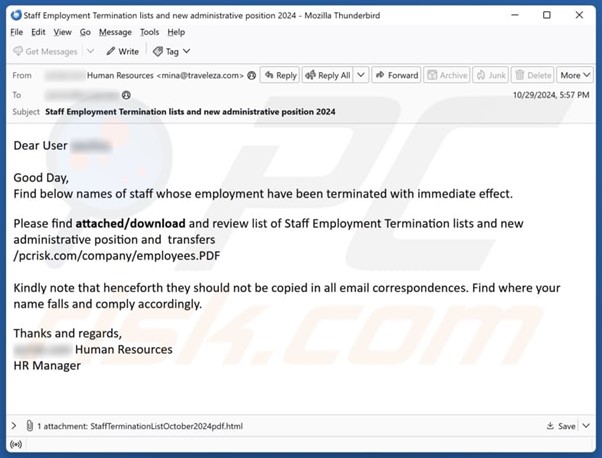Have you heard about the latest twist in employment scams? Cybercriminals are now using job termination as a way to target unsuspecting victims.
18 Feb 2025
•
,
5 min. read

Looking for a job or already employed? Be cautious as employment scams are on the rise. Cybercriminals are now using job termination as a tactic to deceive individuals. Instead of promising a new job, they are now threatening to take away your current one. How can you protect yourself from falling victim to these scams?
Recognizing Job Termination Scams
Job termination scams often involve phishing attacks that aim to trick you into revealing personal or financial information. These scams create a sense of urgency, making you act quickly without thinking. You may receive an email from HR or a third-party claiming that your services are no longer needed. The email could contain details about your colleagues or offer information about severance payments and termination dates to lure you into clicking on malicious links or attachments.
Clicking on these links could lead to:
Be cautious and stay informed about the latest scams to protect yourself and your personal information.
Why are Job Termination Scams Effective?
Job termination scams work because they prey on human emotions, creating fear and urgency. Phishing, like termination scams, is a common initial access tactic for cybercriminals and has contributed to numerous cyber incidents in recent years.
Real-life Examples
Various versions of job termination scams have been observed in the wild:
- An email impersonating a reputable organization, triggering a download of a banking trojan.
- An email from HR containing a fake attachment that leads to a phishing login form.

Protecting Yourself
To avoid falling victim to job termination scams:
- Use strong, unique passwords and enable two-factor authentication.
- Keep your devices updated and patched regularly.
- Avoid clicking on suspicious links or attachments.
- Report any suspicious emails to your IT department.
Stay vigilant and skeptical when dealing with unexpected emails. Protect yourself from falling prey to cybercriminals seeking to exploit your fears and emotions.




